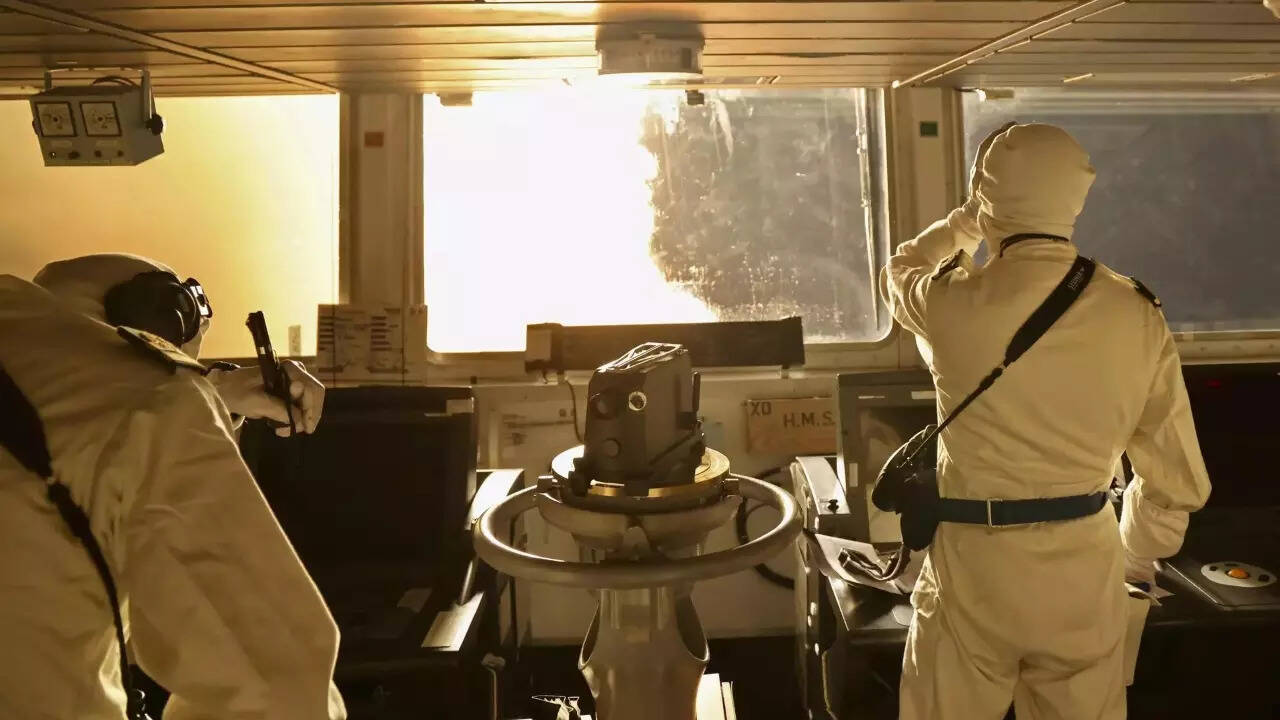The US military conducted a self-defence strike against two Iranian-backed Houthi anti-ship missiles in its controlled areas of Yemen.
US Central Command took its X account and posted, “At approximately 9:50 a.m. (Sanaa time), United States Central Command conducted a self-defense strike against two Iranian-backed Houthi terrorists’ truck-mounted anti-ship missiles in Houthi-controlled areas of Yemen.”
“At approximately 3:55 p.m.(Sanaa time), Houthi terrorists fired two anti-ship ballistic missiles from Yemen into the Gulf of Aden at M/V Propel Fortune, a Singapore-flagged, owned, and operated vessel. The missiles did not impact the vessel. There were no injuries or damages reported. These actions are taken to protect freedom of navigation and make international waters safer and more secure for U.S. Navy and merchant vessels,” it added.
Amid escalating tensions in the region, Houthi fighters have conducted attacks on both commercial and military vessels since November.
Initially targeting ships linked to Israel in solidarity with Palestinians in Gaza, the Houthis later expanded their scope to include vessels associated with the United Kingdom and the United States.
Earlier, in Friday, the US conducted self-defence strikes against four mobile Houthi anti-ship cruise missiles (ASCM) and one Houthi unmanned aerial vehicle (UAV) in Houthi-controlled areas of Yemen.
“Additionally, during this timeframe CENTCOM forces shot down three UAVs launched from Iranian-backed Houthi-controlled areas of Yemen toward the Gulf of Aden. These actions are taken to protect freedom of navigation and make international waters safer and more secure for US Navy and merchant vessels,” the US Central Command said in a X.
Last month, US forces, in collaboration with the United Kingdom Armed Forces and several other nations, launched strikes against 18 Houthi targets in areas controlled by Iranian-backed Houthi terrorists in Yemen.
The objective of this multinational effort, according to US Central Command, is to safeguard their respective countries, partners, and allies in the region. The escalating insecurity in the Red Sea has prompted major shipping lines to largely avoid the critical trade route, opting for longer journeys around Africa.
This shift has resulted in increased expenses, raising concerns about global inflation, while also depriving Egypt of vital foreign revenue generated by shippers using the Suez Canal for Red Sea transit.
US Central Command took its X account and posted, “At approximately 9:50 a.m. (Sanaa time), United States Central Command conducted a self-defense strike against two Iranian-backed Houthi terrorists’ truck-mounted anti-ship missiles in Houthi-controlled areas of Yemen.”
“At approximately 3:55 p.m.(Sanaa time), Houthi terrorists fired two anti-ship ballistic missiles from Yemen into the Gulf of Aden at M/V Propel Fortune, a Singapore-flagged, owned, and operated vessel. The missiles did not impact the vessel. There were no injuries or damages reported. These actions are taken to protect freedom of navigation and make international waters safer and more secure for U.S. Navy and merchant vessels,” it added.
Amid escalating tensions in the region, Houthi fighters have conducted attacks on both commercial and military vessels since November.
Initially targeting ships linked to Israel in solidarity with Palestinians in Gaza, the Houthis later expanded their scope to include vessels associated with the United Kingdom and the United States.
Earlier, in Friday, the US conducted self-defence strikes against four mobile Houthi anti-ship cruise missiles (ASCM) and one Houthi unmanned aerial vehicle (UAV) in Houthi-controlled areas of Yemen.
“Additionally, during this timeframe CENTCOM forces shot down three UAVs launched from Iranian-backed Houthi-controlled areas of Yemen toward the Gulf of Aden. These actions are taken to protect freedom of navigation and make international waters safer and more secure for US Navy and merchant vessels,” the US Central Command said in a X.
Last month, US forces, in collaboration with the United Kingdom Armed Forces and several other nations, launched strikes against 18 Houthi targets in areas controlled by Iranian-backed Houthi terrorists in Yemen.
The objective of this multinational effort, according to US Central Command, is to safeguard their respective countries, partners, and allies in the region. The escalating insecurity in the Red Sea has prompted major shipping lines to largely avoid the critical trade route, opting for longer journeys around Africa.
This shift has resulted in increased expenses, raising concerns about global inflation, while also depriving Egypt of vital foreign revenue generated by shippers using the Suez Canal for Red Sea transit.
